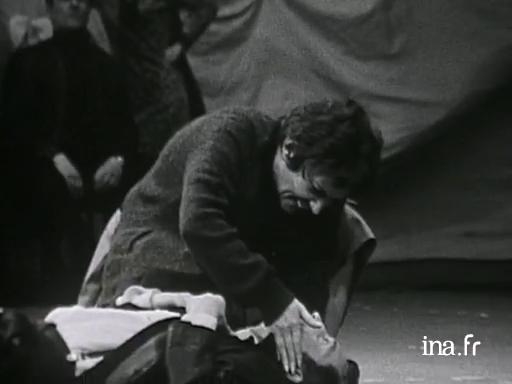Maria Casares rehearses The Screens

Information
Maria Casares rehearses Jean Genet's play The Screens, staged by Roger Blin at the Odeon theatre. The actress explains how she perceives Genet's text and how she works it.
Context
Maria Casarès was born in Spain in 1922. Her father was a Spanish republican minister. Forced into exile, the family moved to France in 1936. In 1942 Maria Casarès graduated from the Conservatoire national d'art dramatique in Paris.
Her strong temper, her prodigious performances of the greatest roles (Medea, Lady Macbeth, Joan of Arc...), her husky voice and a unique diction made her one of the great tragediennes of her time. Her career is most notably marked by performances of Camus pieces(The Misunderstandingin 1943,The State of Seigein 1948,The Just Assassinsin 1949), Sartre (The Devil and the Good Lordin 1951), Genet (The Screensin 1966), Molière, Tchekhov, Péguy, Marivaux, Ibsen. In 1952 she joined the Comédie Française and in 1954 Vilar hired her in the Théâtre National Populaire, with which she'd set the stage alight in the Festival of Avignon.
In the cinema she filmed around twenty feature-length productions, notably with Marcel Carné inThe Children of Paradise(1943) and with Jean Cocteau. From the end of the 1960s, she came back to the theatre under the direction of Lavelli, Sobel and Chéreau. Maria Casarès died in 1996.















